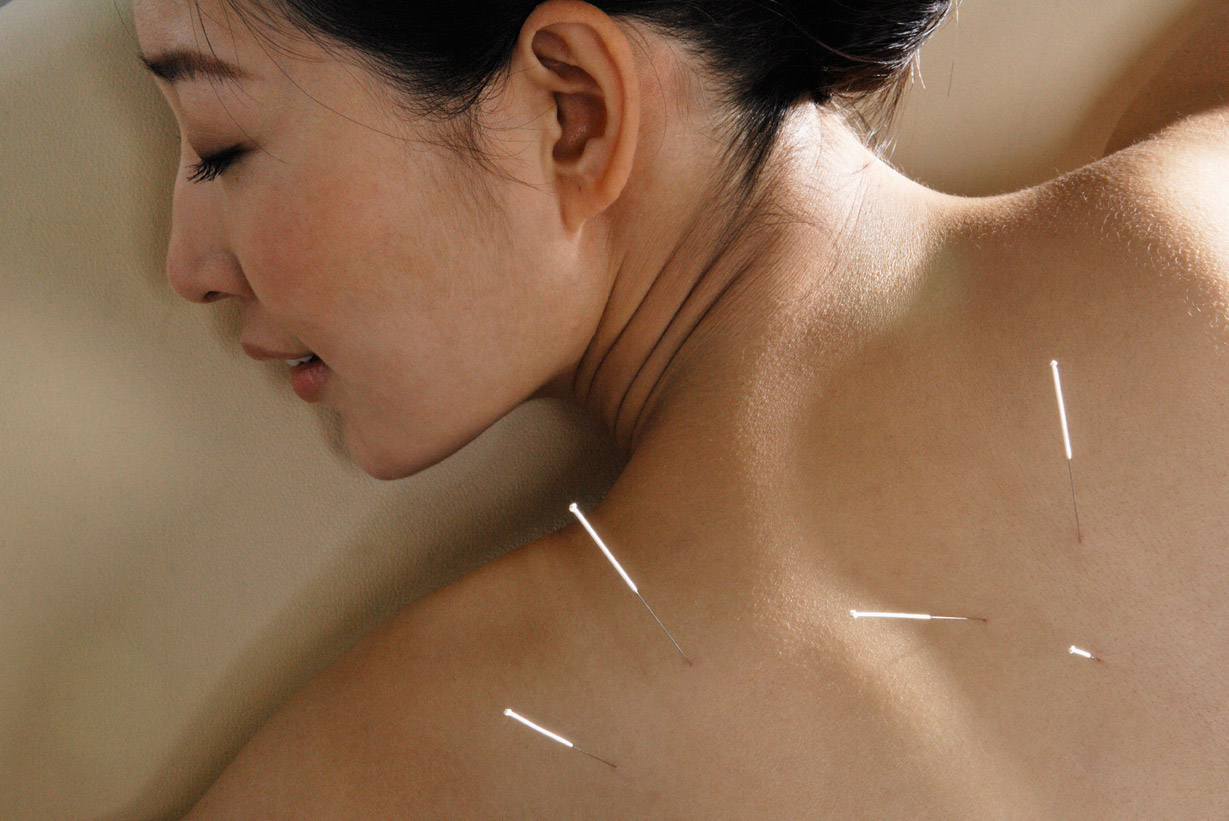Types of Rehab
Wednesday, April 25, 2012While there are many traditional rehabs that have been around for decades, in recent years many rehabs have developed specialized approaches. These types of rehabs that have a unique approach to addiction treatment give individuals the option to seek a facility that directly meets their needs.
Types of Addiction Treatment Programs Include:
12 Step Rehab Programs
Rehab centers that offer 12 step programs set a strong focus on support and spiritual connections. Individuals can feel comfortable knowing that they won’t be judged by their past and can have a positive attitude about the future.
Alternative Rehab Programs
Alternative programs are far from traditional in the sense that they are focused on spirituality and holistic treatments. Most of the time, these types of rehabs are located in a wilderness setting where they can practice alternative treatments such as: Native American healing, yoga, acupuncture, meditation, and more.
 Christian Rehab Programs
Christian Rehab Programs
Christian drug rehabs often have a primary focus toward traditional treatment types, such as the 12 step program. These programs are also unique in the way where individuals are surrounded by others who believe in a higher power, and a lot of the counseling sessions will focus on Christian faith and rebuilding life one step at a time.
Executive Rehab Programs
Rehab centers that offer executive rehab programs are often more focused on privacy and flexibility because those who are attending may not be able to take a long period of time off due to their career. These rehabs will allow patients dedicated blocks of time for any calls, emails, and work that needs to be done that day. Also, a heavy focus is put on privacy because these are often executives or CEOs of large corporations where they don’t want their names leaked into the public eye.
Experiential Rehab Programs
Experiential rehabs focus heavily on active and wilderness therapy. Instead of being secluded in a clinical environment, individuals can take this approach where they partake in outdoor activities such as: white water rafting, horseback riding, and more.
Holistic Rehab Programs
Holistic rehab centers take place in a more relaxing environment where individuals can strengthen their mind, body, and spirit as a whole. Clients can focus more on their nutrition and health with individualized treatment plans based off their needs. Removing everyday distractions with a revitalizing environment, individuals are less likely to leave treatment early because they feel safe and comfortable.
Luxury Rehab Programs
Most luxury rehab centers are located on a coast with ocean views and complete privacy. With the luxury model, there are often less people staying in the facility which makes for a better therapist to client ratio with more one on one time. These facilities also provide luxurious rooms, gourmet meals, and relaxing services such as massages. The whole point behind this treatment model is to extend the stay of each client because it is proven that the longer the stay in rehab, the better the recovery outcomes.
Finding the Right Types of Addiction Treatment
When seeking treatment for substance abuse, individuals can be overwhelmed determining the best “type” of rehab they need for their addiction. There are several things to look for when finding the right treatment center. It’s best to find a treatment center that is most convenient and has the right qualifications.
Learn More About Choosing the Right Rehab
Call Today: 855-763-6488
We Can Help Guide You to Finding the Right Treatment for Your Individual Needs
The Differences Between Outpatient and Inpatient Drug Rehab
Thursday, December 29, 2011Once the person struggling with addiction is ready to ask for help in changing their life, they will be faced with a major decision: should they seek inpatient drug rehab or outpatient care? There are ways in which both approaches to treatment are alike and ways in which they differ. There are advantages to each approach just as there are certain drawbacks on both sides. Understanding how the two approaches compare can be helpful in deciding which is best suited to the person and their situation.
Read More
Choosing the Right Alcohol or Drug Rehab for Your Loved One
Wednesday, November 16, 2011Helping a loved one who is addicted to drugs or alcohol requires a lot of love and patience – and a fair amount of research. In addition to deciding whether your family would benefit from the services of an interventionist, you will need to carefully evaluate your drug rehab options.
If you’ve looked into drug rehab at all, you know it can be difficult to find the one that is best suited to your loved one. The sheer number of rehabilitation centers, compounded by the fact that they all make the same claims, can make the decision process overwhelming.
What features are truly important? How can you dig through the marketing talk to figure out what’s really being offered?
Here are 10 must-ask questions when choosing the right drug rehab:
1. Is the facility licensed and accredited?
Many drug rehab centers claim to provide a high standard of care. The best way to substantiate those claims is through objective third parties. Look for drug rehabilitation centers that have been licensed by the state and accredited by such national organizations as the Joint Commission and CARF (the Commission on Accreditation of Rehabilitation Facilities). These accrediting bodies require programs to meet rigorous standards of patient care and quality programming.
2. Does the staff have the credentials to provide expert care?
 A drug rehab program is only as good as the people providing patient care. The therapists and staff will be the ones “in the trenches” with your loved one, exploring deep-seated issues and offering guidance on how to live a happy, productive, and sober life.
A drug rehab program is only as good as the people providing patient care. The therapists and staff will be the ones “in the trenches” with your loved one, exploring deep-seated issues and offering guidance on how to live a happy, productive, and sober life.
While life experience, particularly a personal recovery story, can make the staff relatable, it is also important that they have the qualifications to provide high-quality care. The treatment team should include licensed drug counselors and master’s level therapists, among other specialists. A favorable staff-to-patient ratio is another important consideration.
3. Does the drug rehab center treat co-occurring mental health disorders?
Most people who struggle with addiction also suffer from one or more co-occurring mental health disorders, such as depression, anxiety, or a personality disorder. While all of these conditions are highly treatable, they require a specialized type of care from a multidisciplinary treatment team.
Research shows that integrated treatment that addresses all disorders simultaneously is the only effective way to address dual diagnosis. Many drug rehab programs claim to treat dual diagnosis, but the ones that do so effectively will have special programming for dual disorder patients and a treatment team that consists of a psychiatrist, 24-hour nursing staff, and other professionals.
4. What is the philosophy of the treatment center?
The 12-Step principles serve as the foundation of treatment at some of the most effective drug rehab programs. If the treatment center you’re considering doesn’t utilize the 12 Steps, find out why and if alternatives, such as SMART recovery and Life Ring, are available. Decades of research have proven the value of 12-Step programs, which provide a framework for lifelong recovery and offer meetings in most communities all over the world.
5. What kind of reputation does the drug rehab have?
There are few indicators of quality as reliable as the informed opinions of others. While online reviews can be dubious, programs that have made a good name for themselves in the community typically have been around for many years and have happy customers recommending their services to others. Those with strong reputations are also likely to welcome you onsite for a tour and provide names of alumni who are willing to share their experiences and advice.
6. Will treatment be tailored to the specific needs of my loved one?
Every drug rehab center has a core “program” as the guideline for treatment. But the best drug rehabs will then tailor this program to the specific needs of each patient, seeking out the blend of therapies that will give that individual the best opportunity for lasting recovery. As the patient grows in their recovery, the treatment plan adjusts to their changing needs.
7. Will my loved one be safe and comfortable?
Recovery requires rigorous honesty, a willingness to confront the past, and a great deal of soul-searching. While the work of recovery isn’t always comfortable, the experience of drug rehab can be.
A number of drug rehab centers offer all of the amenities of resort living, such as swimming pools, private rooms, beautiful views, and highly desirable locations. Some provide assistance with legal problems, interventions, and other services. It is also important that the drug rehab foster an environment of safety and support, where the patient’s privacy is well-guarded and their emotional security protected.
8. What types of therapies and activities are offered?
Typically, a drug rehab center that offers a wide variety of therapies (including gender-specific options) will give your loved one the best opportunity to find what works for them. Most programs offer the basics, including medical detox, individual, group, and family therapy, and cognitive-behavioral therapy.
Other programs go a few steps further, offering art therapy, equine therapy, EMDR for trauma, experiential therapy, and others. Better yet, some programs will offer programming designed to treat mind, body, and spirit, including yoga, acupuncture, massage, and other holistic therapies. Make sure to ask about relapse prevention and continuing care planning as well long-term treatment options.
Also be sure to take into account the types of activities offered and whether they are a match for your loved one. Are there certain types of activities your loved one enjoys? Are they an outdoors person or more of a city dweller? Some programs promote outdoor recreation such as hiking or rock climbing, while others may schedule outings to theaters, shops, and local entertainment venues.
9. Does the program work with insurance?
Cost shouldn’t be an obstacle to getting quality drug rehab treatment. Even some of the most luxurious drug rehabs accept insurance and will work to maximize your benefits and/or create a payment plan.
10. Will I be part of my loved one’s treatment?
Family members and loved ones are an important part of drug rehab treatment. Whether entering short- or long-term treatment, the eventual goal is for the patient to return home to their family. In order for this transition to be successful, family members must learn about the disease of addiction and how best to support their loved one in recovery.
The best drug rehab programs strongly encourage family involvement throughout treatment. Although there may be a short “blackout” period when the patient is not in contact with family members during the first few days of treatment, the program should offer family therapy, visitation, and a family program through the rest of the patient’s stay.
Getting straight answers to these questions will simplify your life at a time when life is anything but simple. With this important decision out of the way, you and your loved one will have taken the first step in the incredible transformation that happens during drug rehab.
Find a Drug Rehab Facility Today
Call Today and We Can be Your Guide
Chronic Pain and Addiction Treatment
Wednesday, September 28, 2011Being in recovery from addiction is, in many ways, like being in recovery from diabetes, heart disease or other chronic health conditions. Your recovery requires a certain amount of care and attention. Common procedures like dental surgery or health complaints like back pain, while unpleasant for most, require extra precautions for those in recovery.
Chronic Pain and Addiction Treatment Methods
In response to surgeries, injuries or chronic pain, standard protocol for doctors is to write up a prescription for a narcotic pain reliever such as Vicodin, Percodan or OxyContin. Yet these highly addictive drugs can derail your hard-won recovery. Fortunately, there are a number of recovery-friendly pain relief alternatives.
Acupuncture
 Alternative approaches like acupuncture aren’t considered all that “alternative” anymore. Mainstream medicine has embraced acupuncture and other forms of complementary and alternative medicine (CAM), with some of the nation’s best drug rehabilitation programs offering acupuncture and other holistic therapies.
Alternative approaches like acupuncture aren’t considered all that “alternative” anymore. Mainstream medicine has embraced acupuncture and other forms of complementary and alternative medicine (CAM), with some of the nation’s best drug rehabilitation programs offering acupuncture and other holistic therapies.
According to the National Health Interview Survey, 3.1 million Americans reported using acupuncture in 2007 – the highest number ever reported. Acupuncture is often used in combination with other approaches as part of a broader pain relief strategy. Although it may not be effective for all types of pain, studies suggest that acupuncture is an effective pain reliever for many conditions, including sports injuries, back pain, fibromyalgia, chronic pain and arthritis.
Scientific research hasn’t proven the exact mechanism that makes acupuncture effective, but experts believe it may release pain-numbing chemicals in the body or block pain signals coming from the nervous system. As with other CAM treatments, there’s no harm in trying acupuncture. Even if it doesn’t work, there are minimal risks or side effects.
 Exercise
Exercise
When you’re in pain, the last thing you may want to do is exercise. But research shows that regular physical activity can boost energy, improve mood, build bone density, keep joints flexible, strengthen muscles and relieve chronic pain. Start with a short walk most days of the week and gradually increase the intensity with guidance from your doctor.
Chiropractic Care
Chiropractors use spinal manipulation and other approaches to align the body and enable it to heal without the need for medication or surgery. Roughly 22 million Americans visit chiropractors each year, mostly for back pain. Chiropractic care also can be beneficial for those suffering from neck pain, sports injuries, repetitive strains, arthritis and headaches.
Physical Therapy
For people struggling with arthritis, headaches, fibromyalgia and other chronic conditions, pain relief sometimes can be achieved through physical therapy. Physical therapists teach patients how to cope with pain on a daily basis by building up strength and endurance, improving range of motion, and enhancing flexibility in the muscles and joints. Sessions with a physical therapist may include stretching or strengthening exercises, massage, manual therapy, ultrasonography, iontophoresis, and/or low-impact aerobic conditioning.
Diet and Weight Management
Certain types of pain can be reduced by making healthy lifestyle changes. Limiting saturated fats and eating more fruits, vegetables and whole grains can boost the immune system and improve overall well-being. If you’re overweight, losing just a few pounds can reduce the load on your joints.
Supplements
Certain vitamins and dietary supplements have been reported to ease pain, though studies show mixed results. Examples include capsaicin, which is derived from chili peppers and may help with arthritis and diabetic nerve pain, and fish oil to reduce inflammation.
Talk with a specialist before beginning a supplement regimen. High doses of certain vitamins can thin the blood or result in nerve or organ damage, and even natural herbal remedies can interact with other medications in harmful ways. A number of drug rehabilitation programs offer nutraceutical therapy, or you can get recommendations from a nutritionist or registered dietitian.
Stress Management Techniques
Stress is a significant contributor to pain as well as a wide range of other emotional and physical ailments. According to the 2007 National Health Interview Survey, nearly 40 percent of participants reported using CAM in the past 12 months (most commonly meditation, massage and acupuncture). While not all stress management techniques are effective for all types of pain, studies show that CAM therapies alleviate pain, sometimes even more effectively than traditional approaches.
Some of the most effective stress management techniques include yoga, massage, meditation, tai chi, and biofeedback. Many of these services are offered at the best drug rehabs and can be continued with a local provider after completing treatment. Other strategies may include hypnosis, guided imagery and music therapy.
 Therapy
Therapy
If you’re struggling with chronic pain, studies show there’s a good chance you’re also battling depression. Left untreated, each condition can worsen the other so it is important to talk with a counselor to promote healing in both areas. Cognitive-behavioral therapy and support groups have proven particularly beneficial for stress reduction, anxiety, depression and other emotional issues that perpetuate pain.
Non-Addictive Medications
One non-addictive pain medication that works for certain people is neurontin, also known as gabapentin. Originally developed to control seizures in people with epilepsy, it has also been found to be effective for some types of chronic pain such as that caused by damage to nerves.
In many cases, pain can be treated with anti-inflammatory drugs such as prescription-strength ibuprofen (except chronic pain, since aspirin and ibuprofen can impair stomach and liver function over time). These non-habit-forming alternatives can at least serve as a starting point.
In general, physicians do not receive adequate training on substance abuse and addiction. You’ll need to become a strong advocate for your own recovery, refusing to take mind-altering substances whenever possible and working with a doctor who understands the special needs of patients in addiction recovery. Find a doctor who specializes in addiction (an “addictionologist”) and talk to them about whether non-addictive medications will be safe and effective in your particular situation.
If anti-inflammatory drugs aren’t sufficient and you’ve exhausted the alternatives, your doctor may be able to prescribe a painkiller that is less addictive and longer acting than those traditionally offered. If you end up taking some form of prescription painkiller, you will need to minimize the dose and length of drug therapy, intensify your involvement in a recovery support program, and work closely with your doctor to vigilantly monitor the course of treatment.
Being in recovery doesn’t mean that you have to be in pain. In fact, allowing pain to continue unabated slows the healing process, can lead to depression, anxiety and sleep disturbances, and is itself a significant risk factor for relapse. By avoiding addictive drugs whenever possible and exploring some of these alternative avenues of pain relief, you can manage your pain without jeopardizing your recovery.
We Can Help You Find Appropriate Programs for Your Needs
855-763-6488
Outpatient Drug Rehab
Thursday, September 15, 2011Addiction professionals have long recognized the need for intensive therapy at affordable prices. In recent years, intensive outpatient treatment (IOT) has begun to bridge the gap between traditional inpatient drug addiction treatment and weekly outpatient sessions, providing a cost-effective option for those struggling with addiction.
Differences Between Outpatient Rehabs and Inpatient Rehabs
Traditional outpatient drug rehab usually consists of counseling, either individual or in a group setting. However, research has shown that weekly counseling is not sufficient to treat patients with moderate or severe drug addiction, nor is it comprehensive enough to address psychiatric or medical issues that may be present along with the drug addiction.
By comparison, inpatient drug rehab is the most intensive treatment available. Patients are removed from their unhealthy environment and live in a highly structured and supportive drug rehab center. Under 24-hour supervision by a medical professional, patients undergo drug detox with minimal withdrawal symptoms and drug cravings. Following detox, patients participate in intensive therapy, educational sessions, 12-Step meetings and other recovery-related activities. Inpatient drug rehab is typically necessary when patients cannot maintain sobriety without 24-hour support or have significant medical, emotional or behavioral issues.
Bridging the Gap
 Given the cost of inpatient drug rehab, a less costly alternative was needed. Enter the intensive outpatient model of drug rehab. As with other types of drug rehab, intensive outpatient rehab programs (IOP) come in many varieties and are administered in a multitude of settings. This type of treatment falls about halfway between the intensities of traditional inpatient and outpatient treatment and is far less costly that inpatient addiction treatment.
Given the cost of inpatient drug rehab, a less costly alternative was needed. Enter the intensive outpatient model of drug rehab. As with other types of drug rehab, intensive outpatient rehab programs (IOP) come in many varieties and are administered in a multitude of settings. This type of treatment falls about halfway between the intensities of traditional inpatient and outpatient treatment and is far less costly that inpatient addiction treatment.
Every year drug addiction and alcoholism cost upwards of $100 billion in lost productivity, medical expenses, crime and road accidents. Yet we currently spend less than 10% of this amount on addiction treatment programs. As the incidence of drug- and alcohol-related problems continues to rise, addiction professionals must learn to do more with less. Intensive outpatient treatment is emerging as the solution to this problem.
Intensive Outpatient Rehabs Give Patients the Opportunity to Receive Intensive Treatment without the Costs of Inpatient Treatment
Studies have shown that the more time a patient spends in drug rehab, the more likely he is to stay clean. Given the cost associated with inpatient treatment, it is fiscally impossible to provide adequate inpatient addiction treatment to all patients who require it, especially for patients whose care is being paid for by insurance companies or government agencies.
When patients are given longer periods of treatment, they are able to practice their newly learned behaviors, test out their sober selves and become part of the sober community in their area. Patients in inpatient settings may have to wait until they are discharged to experiment in these areas, in some cases without the support of addiction professionals or supportive peers.
Benefits of Intensive Outpatient Drug Rehab Treatment
Affordable
Since intensive outpatient drug rehab is about half the cost of traditional inpatient treatment, patients can receive several more weeks of treatment than they would get if inpatient was the only option. In addition to higher sobriety rates, patients who continue to participate in intensive outpatient treatment are typically more productive members of society. They are often better equipped to stay in school, hold down a job or care for family members than those who are discharged from traditional outpatient facilities. When intensive outpatient addiction professionals work closely with community-based providers in developing a patient’s discharge plan, additional financial savings have been demonstrated.
Customized Treatment
Since the idea of hospitalization is a turnoff for many patients, the intensive outpatient model offers an attractive alternative. Addiction professionals have also found that this model allows them to customize treatment in response to the needs of local residents or special groups of patients. Some patients feel more comfortable in IOT as they can often avoid the embarrassing disclosure of personal information that could occur if they had to explain the need to miss school or work to participate in inpatient drug rehab.
Flexible
Clinicians applaud intensive outpatient drug rehab for its flexibility. The severity of addiction varies among patients and within each patient over the course of treatment. In a typical case, the patient will require more intensive drug rehab treatment early on and then gradually taper off. Complications such as relapse, medical emergencies and other mental health issues may require the patient to return to a more intensive level of treatment. Intensive outpatient programs (IOP) can easily increase in intensity without having to place the patient in an inpatient drug rehab facility.
More Individuals Equals More Specialized Treatment Options
Intensive outpatient programs are able to treat more patients than inpatient programs and, thus, may be able to create specialized groups for patients with similar backgrounds. This is especially helpful for those who have experienced sexual trauma, relapse and anger management. Since IOT is a team-based treatment that offers more than just individual or group therapy sessions, studies have shown that patients are more likely to stick with treatment than when in a traditional outpatient program.
Continue Encountering Real Life Situations
A unique characteristic of IOT is that it encourages patients to apply what they have learned to real-life situations. For instance, when faced with stressors or challenges, they can immediately apply coping strategies that they have learned. When patients are introduced to new behaviors during inpatient treatment, they sometimes have to delay real-life application. With outpatient treatment, the effectiveness of particular strategies or behaviors can be monitored real-time and modified as necessary to give the best chance at lasting recovery.
Focuses Treatment on the Individual
In addition to treating addiction, intensive outpatient drug rehab provides opportunities to address problems related to family, job, social groups or other mental health issues. Addiction professionals can work with family members, co-workers and friends to help strengthen or repair interpersonal relationships that were damaged during the period of active addiction.
Relapse Prevention
Once these support networks are established, the patient will be better equipped to handle any relapse challenges they may face. Further, daily contact with treatment providers enables patients to address relapse even before it happens (for instance, when a patient reports the re-emergence of addiction “triggers”).
If an intensive outpatient participant does relapse, it is seen less as a failure and more as an indication that the treatment goals need to be modified or that the patient has not gone far enough in making lifestyle changes. Patients typically respond well to this approach and, more often then not, stay in treatment and use the relapse as a learning opportunity.
Call Us Today: 855-763-6488
We Can Help…
Drug Rehab and Addiction Treatment Programs
Friday, August 26, 2011Drug and Alcohol Intervention
The first step in the road to a successful recovery from addictions to drugs and alcohol, interventions are meant to be a “wakeup call” to those that are suffering from addiction. This wakeup call is intended to show the addict just how far along and bad the addiction or drug and alcohol abuse has become. Admitting the problem and seeking treatment for the problem is the goal of both family and individual interventions. More on Drug and Alcohol Intervention >>
Alcohol Detox
Alcohol is a chemical that can be quite dangerous to humans, though many in the world consume small amounts of it on a regular basis. Overuse of alcohol throughout the years and binge drinking can leave the body physically addicted to the presence of alcohol in the system; in this situation, alcohol must be slowly detoxified from the system through alcohol detox. If the alcohol detox is not performed correctly in a medical setting, the risk of seizures, long-term health problems, and even death can occur. More on Alcohol Detox >>
 Drug Detox
Drug Detox
Certain drugs and chemicals have extremely strong effects on the human body and mind. Drugs such as Crack-Cocaine, Prescription Painkillers, Methamphetamine, Oxycontin, and heroin can go very quickly from being used recreationally to a full on addiction. These drugs cause such strong addictions in the body, that drug detoxification is necessary to safely rid the existing drugs from the system, before entering treatment for the drug use. More on Drug Detox >>
Drug Rehab Counseling
While there are many factors that go into the overall recovery of a recovering addict, one factor that must be present in all drug and alcohol treatment and drug rehab programs is the implementation of drug and alcohol rehab counseling. Whether in a group or an individual setting, counseling helps the recovering addict cope with the changes that are occurring, and inspires hope for a future of sobriety. More on Drug Rehab Counseling >>
Chronic Pain Management
There are a great many of people that have injuries or medical conditions that cause moderate to severe pain on a daily basis. The pain is so great that these individuals often begin a regimen of medications and painkillers to ease the pain throughout their days. When an individual has been taking medications for pain for many years, the likeliness of addiction to those painkillers becomes increasingly probable. Managing pain and balancing the addictive chemicals used to treat this pain is the goal of Chronic Pain Management. More on Chronic Pain Management >>
Depression Treatment
Depression is a serious mental disorder that affects millions around the world every year. Depression is very closely-linked to drug use and alcohol abuse; a depressed individual has the tendency to drink or use drugs in an attempt to self-medicate the problem, while drugs and alcohol have the tendency to cause, strain, or increase depression in many individuals. More on Depression Treatment >>
Dual Diagnosis in Drug Rehab
Mental illnesses and disorders such as PTSD (Post Traumatic Stress Disorder), Melancholia, Depression, Anxiety, Panic Attacks, or Bipolar Disorder are highly prevalent in those that are abusing drugs and alcohol, or have an addiction. These Dual Diagnoses – or Co-Occurring Disorders – need to both be addressed during treatment for addiction. The mental issues and addiction issues are so closely linked, that treating both consecutively provides a more successful recovery. More on Dual Diagnosis in Drug Rehab >>
Treatment Program Types
There are many different types of treatment programs for addiction, and many different facilities with different approaches and some very unique treatment techniques. People are very diverse, so the methodologies of treatment used to treat these diverse people must also be diverse. From Equine Therapy to Music Counseling, there are countless addiction treatment programs being utilized in the mental health and addiction treatment fields. More on Treatment Program Types >>
Alternative Drug Treatment Programs
While there are many treatment types, programs, facilities, and counseling techniques that go into popular addiction treatment programs, some individuals opt for more natural and holistic treatment options. Alternative Drug Treatment Programs employ many natural remedies such as diet, exercise, meditation, yoga, and other techniques. More on Alternative Drug Treatment Programs >>
Choosing a Drug Treatment Program
Remember when choosing any type of drug treatment program you should look at the backgrounds of the staff, the history of the type of treatment, scientific and medical basis for any statements about the treatment, and openness. Very few legitimate drug rehab programs will give you a specific success rate number or “cure rate,” because they know this is inaccurate at best and purposely misleading at worst. Therefore, it’s a good idea to look at credentials, acceptance by the treatment community, and medical safety when choosing a program. Find a Drug Treatment Program >>
SPEAK WITH AN ELEMENTS BEHAVIORAL HEALTH RECOVERY ADVISOR IMMEDIATELY:
855-763-6488
We Can Help You Navigate Your Addiction Recovery Options
Drug Rehab Treatment
Wednesday, August 24, 2011What exactly is drug rehab treatment and how does it differ from other forms of treatment, such as outpatient counseling, 12-step programs, or hospitalization?
Initial Drug Rehab Treatment Assessment
 When you first start drug rehab treatment you will undergo an initial assessment. This will often start with an interview asking you questions such as:
When you first start drug rehab treatment you will undergo an initial assessment. This will often start with an interview asking you questions such as:
- What drugs have you been using?
- How much have you been taking?
- How long have you been taking them?
- How much alcohol are you drinking?
- Have you experienced any blackouts or memory loss?
- Have you ever had seizures or other severe withdrawal symptoms?
- Do you have any allergies?
It is critical that you are completely honest during this assessment because it will guide the drug rehab treatment program in how to handle your detox from drugs and alcohol with as little discomfort as possible.
A medical doctor will usually be the next person to see you. He will take your blood pressure, your temperature, and do a general exam. Some drug rehabs may take blood and urine samples for testing.
The medical doctor will prescribe a detox plan, which may include some medication to ease symptoms. For addiction to opiates such as oxycodone this might include Suboxone. For alcohol they may use an anxiolytic to calm the nervous system.
Drug Rehab Detox Treatment
How a rehab does detox is incredibly important. It is critical not only in making sure you don’t bolt from treatment, but also in ensuring no damage is done. Alcohol withdrawal in particular can further damage memory and the brain’s executive functioning if not done properly. In fact, some specialists believe most damage to the brain happens during withdrawal stages in drinking. For example, binge drinkers do the most damage to their memory and executive functioning after the binge and during the hangover period – the hangover is simply your body detoxing after being poisoned.
Sometimes a psychiatrist will assess you before the drug rehab detox treatment, but many will also want to redo the assessment after you have detoxed so they have a clearer picture of your mental state. The psychiatrist will assess for depression, bipolar disorder, PTSD, compulsive behavior, and other disorders and develop a plan for treatment.
Undiagnosed or undertreated clinical depression and other psychiatric disorders are one of the biggest reasons people relapse after treatment. Some people simply stop taking antidepressants even after they have been diagnosed as meeting the criteria for clinical depression. This is counterproductive and often leads to relapse.
Because anti-depressants do not get you “high” like other drugs, there is no reason to refuse them if you are truly clinically depressed. Beware of judgmental people in 12-step meetings who think they are doctors. No one in a 12-step room should be diagnosing psychiatric issues.
Drug Rehab Treatment Program
After detox, the main drug rehab treatment begins. This will include one-on-one talks with a therapist but will mostly be in the form of group therapy. This is because studies have shown that the group process is by far the most effective in drug addiction treatment.
Most drug rehabs will also introduce you to 12-step programs while in treatment. They may have in-house 12-step meetings if they are a large treatment center, or may take you to community meetings if they are a smaller treatment program.
Most rehabs will also offer some specialized forms of therapy, such as motivational interviewing, drama or art therapy, equine therapy, or an experiential program.
During rehab the treatment will vary depending on a number of factors:
- Your specific psychiatric and/or medical issues
- The type of drug rehab you choose
- The cost of the rehab you choose
For example, if you go to a very large rehab with hundreds of beds, it is unlikely that you will get a lot of individual therapy. This is not a bad thing necessarily – since group therapy is far more effective. However, if you have any underlying psychiatric diagnoses, you definitely want to be working with a psychiatrist at least once a week if not more to manage any changes in medication and discuss your mood and anxiety levels.
Some of the more exclusive rehabs will offer alternative and complementary treatments such as saunas, massages, acupuncture, and neurofeedback. For people with chronic pain issues, these can be very helpful.
A note on saunas: there is no scientific evidence that they actually aid in detox from drugs and alcohol. They are relaxing however, so as long as you do not have high blood pressure or any other underlying health issues that put you at risk, they are fine to do. However, they are NOT a substitute for a legitimate medically supervised detox.
Rehab Aftercare Planning
Toward the end of your drug rehab treatment program you will begin to do aftercare planning. If you live near the rehab, they may offer free outpatient counseling for weeks after discharge. Some may have special alumni meetings on a regular basis that you can attend.
Most aftercare planning involves creating a contract, essentially with yourself, to follow certain recommendations that your therapist believes will give you the best chance of sustained sobriety. This might include private or group therapy when you return home, finding a sponsor at a 12-step group within a certain period of time, and follow-up calls with the rehab to see how you are doing.
For some, the aftercare plan may include a sober living house, especially if you seem particularly vulnerable to triggers in your home environment. Some people may also need legal help or career counseling as part of re-integrating back into society.
If you came to the rehab through an interventionist who is also a case manager, they will likely be part of the aftercare planning.
Addiction Treatment Discharge
The day has come. You have completed anywhere from 30 days to 6 months in an addiction treatment center, and you are ready to go home. It can be exhilarating and terrifying at the same time. Do you have a strong enough foundation for sustained recovery? Will your family and friends support you? How will you deal with your old drinking and drugging friends?
It is normal to have anxiety about returning home, and this is why a solid aftercare and discharge plan is critical. However, a plan only works if you actually stick to it. You just committed yourself to 30 or more days in rehab; don’t sell yourself short by not taking the steps you need to take when you return home.
Tired of Struggling with Your Addiction?
We are Here to Help – Call us Now!
Executive Drug Rehab Programs
Wednesday, August 24, 2011Although the principles behind executive drug treatment may be based on traditional practices known to be effective, some executive drug rehabs have begun to focus on the specialized needs of high-level executives, entrepreneurs, and professionals who are either in the spotlight in their profession or who may be under intense scrutiny by stockholders or the like.
CEOs, Vice Presidents, and business owners who are responsible for others’ jobs and livelihood are under intense pressure to perform and deliver. Often it is impossible for these executives to go to a drug rehab and have little or no contact with their company.
Executive Drug Treatment Programs Are More Flexible
An executive drug rehab program understands the exceptional need for privacy, the importance of maintaining connections with their company, and the support needed for other issues that have arisen due to the abuse of alcohol or drugs, such as legal or financial problems.
An executive drug rehab program will often be more flexible in terms of e-mail and phone communication, and will allow scheduling for important calls and meetings.
Because privacy is particularly critical for high-profile executives, many of the drug rehabs specializing in their treatment are in secluded or gated locations. These rehabs often also treat celebrity clientele so they are extremely sensitive to the privacy of each client in treatment.
Executives Respond Better to Inpatient Treatment
 Executives in high-profile or high-powered positions respond extremely well to inpatient treatment, so many corporations will refer their highly valued and highly visible executives to rehabs specializing in this treatment. In some cases, employers may require ongoing monitoring and updates, and drug rehabs that specialize in executive care and help companies develop a plan for effective follow-up and maintenance of sobriety.
Executives in high-profile or high-powered positions respond extremely well to inpatient treatment, so many corporations will refer their highly valued and highly visible executives to rehabs specializing in this treatment. In some cases, employers may require ongoing monitoring and updates, and drug rehabs that specialize in executive care and help companies develop a plan for effective follow-up and maintenance of sobriety.
The actual treatment program for an executive may not differ much from a traditional treatment program, although many of these rehabs are higher end and therefore offer complementary treatments not available at basic drug rehabs. This might include massages, acupuncture, nutritional counseling, physical therapy, fitness instruction, and alternative therapies that are often too costly for the more basic rehab settings.
Luxury Drug & Alcohol Treatment Options
Executive drug rehabs also tend to be more luxurious and in more expensive neighborhoods, such as the Pacific coast of California around Newport Beach or Malibu.
If you are looking for an executive drug rehab, you will likely want to ensure that they have a high regard for privacy and that you will be in treatment with similar people who will understand your challenges and pressures
The rehab should include physical examination, psychiatric assessment, individual therapy, group therapy, complementary therapies, and family therapy. You will want to work with a treatment program that will develop a contract with the executive in terms of emailing, phone meetings, and critical contact with their company that cannot be missed while in treatment.
Call Us Today. We Can Help Guide You Through this Difficult Time
855-763-6488


